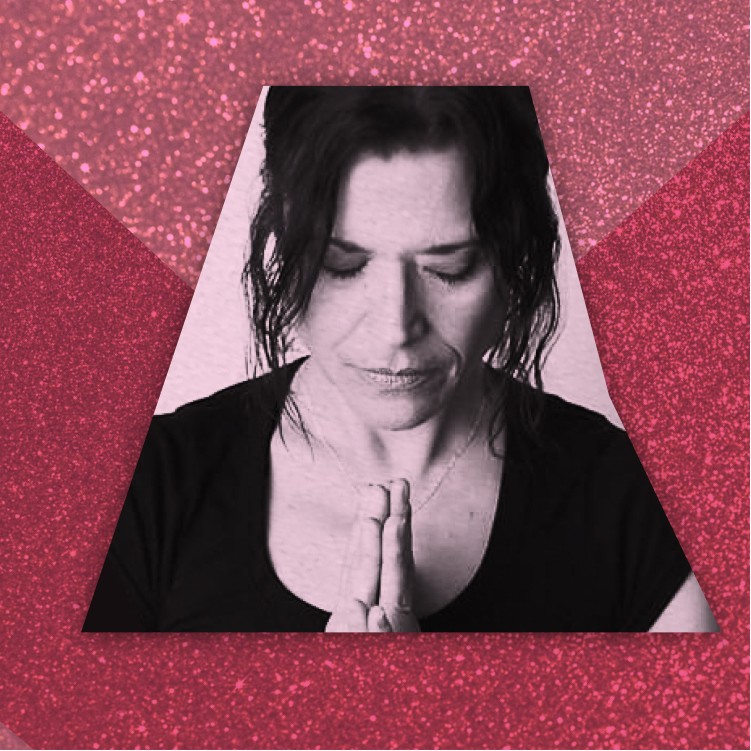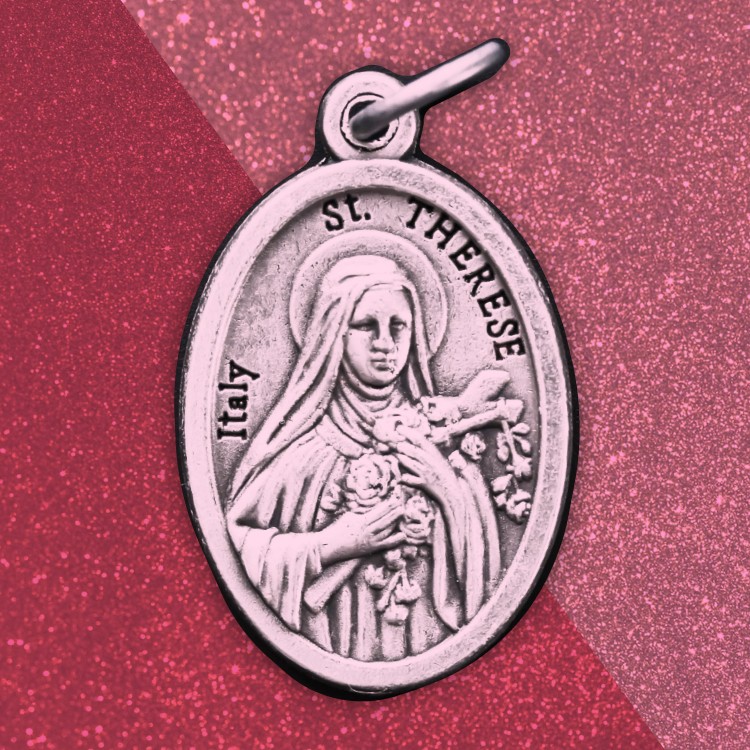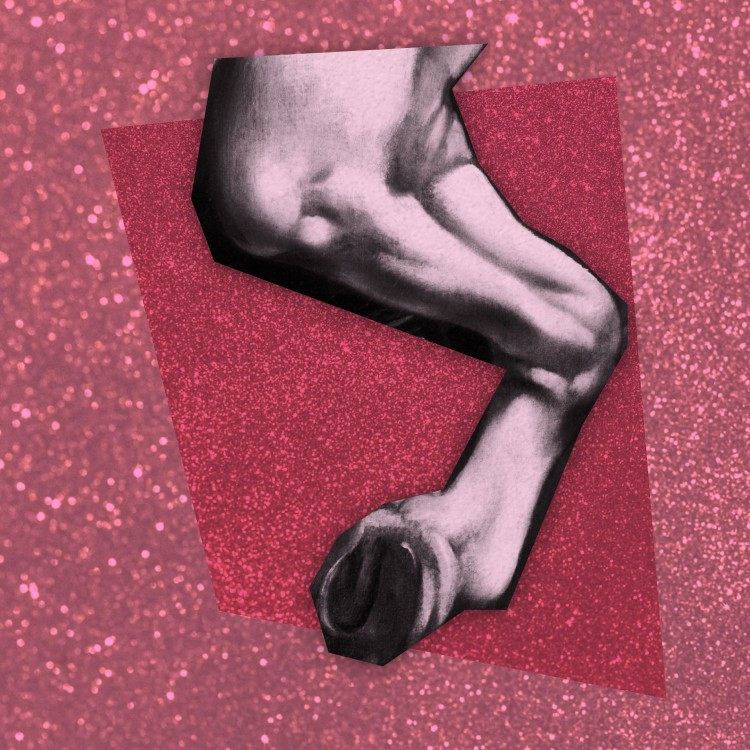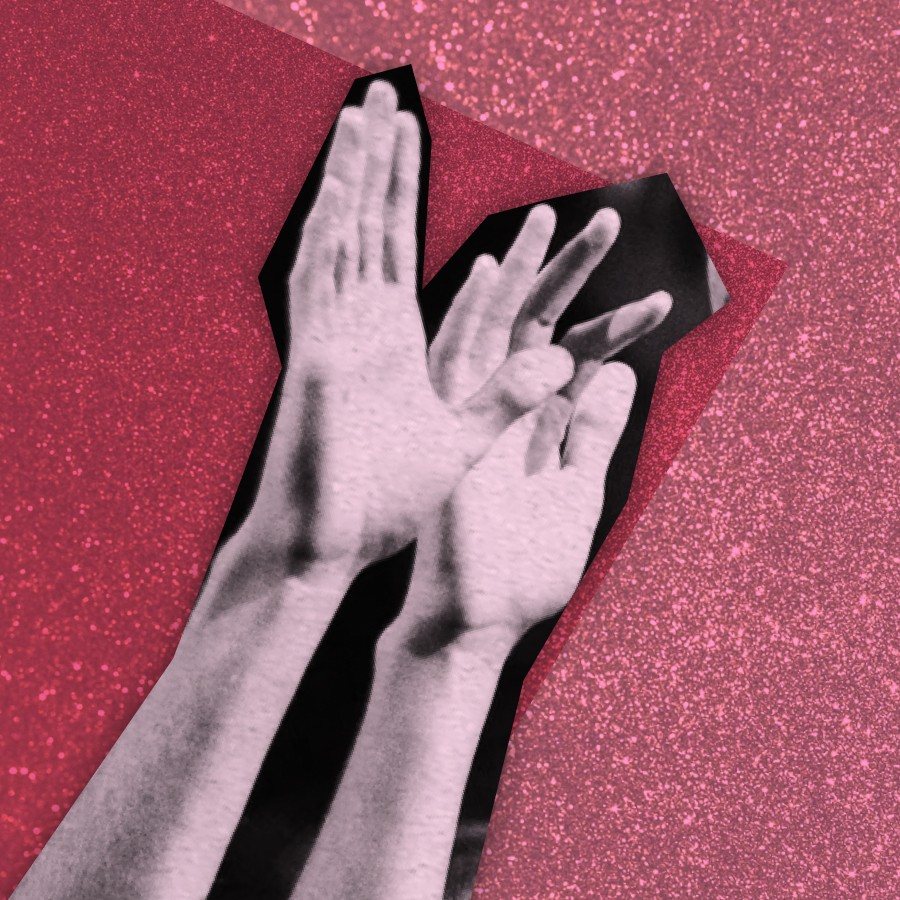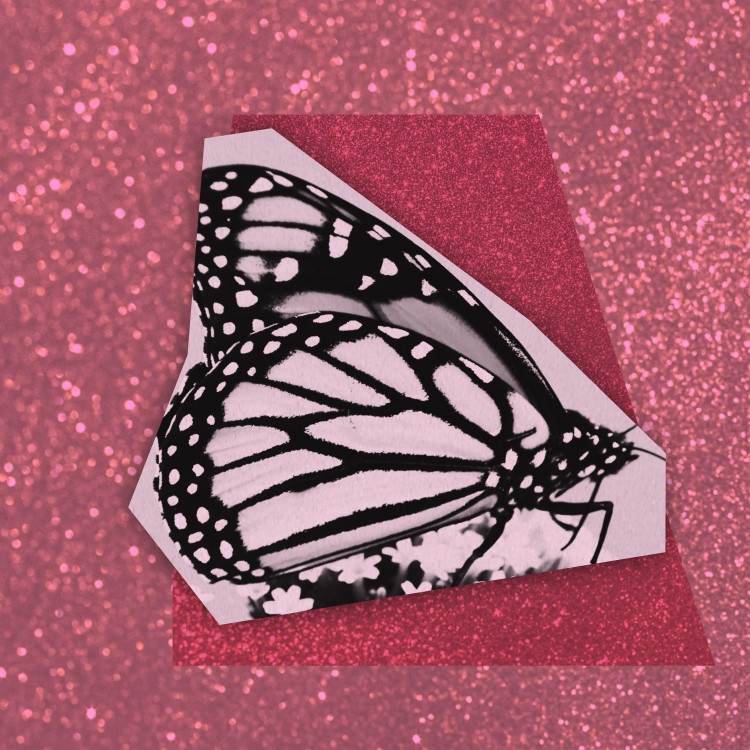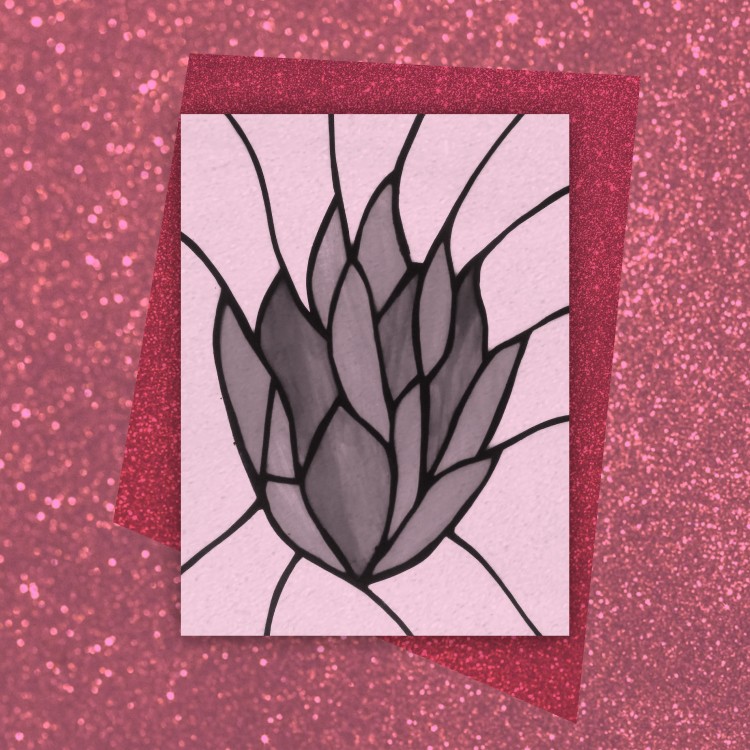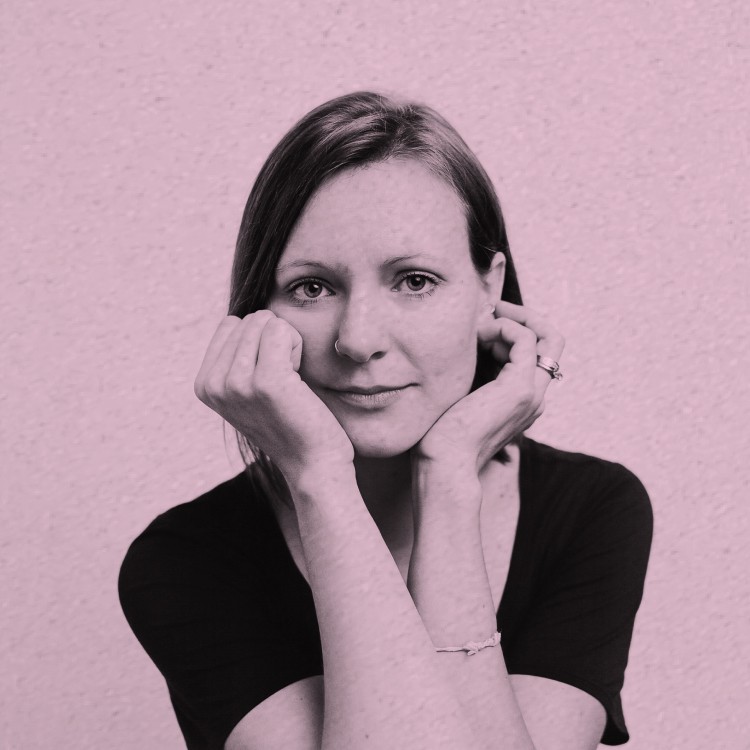The Saint
Alana’s mother seeks justice amidst the Church’s denial. Simon confronts his past. And another tragedy befalls the Chen household, destroying almost everything.
Part 8 • 45:18
Dear Alana, is available free on all platforms and as an exclusive ad-free binge for Tenderfoot+ subscribers. To sign up or learn more, visit Tenderfootplus.com.
Transcript
The following episode contains references to suicide. If you or someone you know is in need of help, please contact the Suicide and Crisis Lifeline by dialing 988. Listener discretion is advised.
[Phone notification buzzes]
SIMON KENT FUNG: I slept through an early morning text from my mom. And when I wake up and check my phone, I find her message. “Your grandmother passed away this morning around 3am.” I call my Mom immediately. My grandma, who’s 94, hasn’t been in good health for a while now. We were close. But as her health declined, our monthly phone calls tapered off. And whenever I’d visit, we’d often just sit together in silence. But this news still comes as a shock to me. The funeral is set for two and a half weeks from now.
As I think about the trip home, my stomach tightens into a knot. Everyone in my family will be at the funeral. Including my cousin, Vivian. Twelve years ago, when she walked out of that car, after coming out to me, we stopped talking.
I have no idea where she’s at today. I don’t even know what city she lives in. And there’s a version of the funeral where I could show up and greet her politely and then never talk to her again, continuing the streak.
But I think about Alana. And there’s absolutely no way I can let that happen.
A friend suggests I write to Vivian before the funeral. She could read my message, or ignore it, but it would still give her an opportunity to know what’s on my heart. So over the course of a few days, I draft this email:
"Dear Vivian, I know it's been a while since we've spoken. You may not have any interest to hear from me (which I totally understand), but I hope you'll give me a chance, as it contains a lot of things that I've been afraid to tell you, and which I think you deserve to hear. First, I'm gay. It's taken me the last 20 years to come to terms with this, the first 15 of which were spent running away by seeking desperately to get rid of it. Everything I told you that time in the car about finding counseling for your sexuality, I pursued myself: I thought that by working hard enough God would take this away. It didn't happen and I’m still working through the shame and self-hatred these efforts perpetuated. I’m sad that at a young age we both had to suffer in isolation. Second, I'm sorry. I'm sorry for not having the courage to be honest about my own struggle. I'm sorry for the ways my words alienated you and made you feel so alone and misunderstood. I'm sorry for trying to change you. I'm sorry for my pride that kept me from saying any of these things earlier. And I understand if they’re all too little, too late. You know, I've often thought about how much courage it took for you to come out at the age and time you did. I certainly didn’t have this courage, and at one point, I thought you were making a big mistake or moral concession. It's been humbling to recognize how wrong I was. And so, I ask for your forgiveness. We may never be as close as when we were kids, but I hope at some point we could re-start things. I'm always curious what you're up to. Hope this doesn't make everything more awkward next week. Looking forward to seeing you.”
[Send email sound]
From Tenderfoot TV, I’m Simon Kent Fung. And this is Dear Alana.
Part eight. The Saint.
SIMON KENT FUNG: It’s been over two years since Alana’s death. And on a Sunday afternoon, a group of around thirty people holding red roses is gathered in front of St. Tom’s, Alana’s church. Joyce stands at the front of the group next to a smiling portrait of Alana. They’re here today to conduct a peaceful vigil, a demonstration of sorts, in memory of Alana. This was Joyce’s idea.
[Crowd singing]
The crowd is a mix of Joyce’s friends and family, supporters from Out Boulder County (the LGBTQ organization that helped her organize the event), and other locals who’ve joined the vigil. It’s the first time that Joyce has done anything this public, and although the turnout is small, it’s enough to bring out the local news, who ask Joyce to talk about why she’s here.
JOYCE: So I just wanted to let them know we know. And if other people come up to us, students, it’s usually young people, college students, I want them to know that this is wrong. That you can love God and be any religion, if you’re LGBTQ or anybody. That this is a bad teaching, for someone to die by suicide.
SIMON KENT FUNG: Joyce is hopeful that she’ll be able to speak to students as they show up for the 6pm Mass. But the vigil is largely ignored, except for a middle-aged member of St. Tom’s who watches from the door with his arms crossed. Students brush by Joyce without saying a word, and only one person stops to talk, sharing the recent loss of her own brother to suicide. As the vigil concludes with a few more songs, and the last of Joyce’s friends have gone home, the man who’s been watching from the top of the stairs picks up the roses left from the vigil, and throws them in the garbage.
I knew at some point, I’d be right here. Standing inside St. Tom’s with the goal of talking to Fr. Peter. The sunlight filters through the small windows along the side aisles, making the church extra cozy. I take a seat at the back as the pews fill up with students. They’re all nodding along to Fr. Peter, who’s reflecting on the gospel reading where Jesus brings over a child and tells his apostles that, “Whoever wishes to be greatest, must be the least. The first must be the last.” I’m kinda mesmerized listening to him. He’s goofy, and self-deprecating and personal. He talks about how we need wisdom to encounter each other truthfully. He builds to a passionate crescendo saying, “I want someone to encounter me [like Jesus does], not their idea of me, not their anger about me…I want them to encounter me.” And I find myself nodding along.
But I feel mixed-up inside. This hipster priest, who seems to be doing such great work for the Church and the community, who’s doing exactly what I’ve always wished I was doing with my life, this is the same guy whose church, according to the Denver Post, hosted Alana’s Catholic therapist, the therapist who Alana said made things worse. It was Fr. Peter who insisted that Alana apply to the Living Waters program that claims to “heal the sexually and relationally broken,” the one she couldn’t afford. It was under Fr. Peter’s watch that those books, filled with conversion therapy theories, were stocked in the St. Tom’s library. And yet, I know that at some level, he’s simply doing his job. And I’m beginning to see how messed up that actually is.
I reached out to former staff and students at St. Tom’s. Of the ones who agreed to talk, they said that after Alana died, there was a deafening silence. They don’t recall anything officially organized by St. Tom’s to acknowledge Alana’s passing. But the parish did make a public statement.
ADI GUAJARDO (DENVER7 NEWS): Now we did reach out to the St. Thomas Aquinas Church in Boulder, the church Chen attended. They released the following statement reading in part, “She will be greatly missed. Striving to be a community who welcomes anyone and everyone as Jesus did, we reject any practices that are manipulative [and] forced…We believe that every person is a beloved child of God and should be treated with dignity, mercy, and reverence.”
SIMON KENT FUNG: As I listen to this statement from St. Tom’s, I’m feeling frustrated. It strikes me as an empty thoughts and prayers kind of statement. And its denial of practices that are “manipulative and coerced” seems like a semantic cover. The controversy over the role of the Church in Alana’s death spreads locally, and the Archdiocese of Denver’s spokesperson doubles down with a stronger statement. In an interview with the Denver Post, he says, quote, “Never once was conversion therapy practiced. It was never discussed with her or suggested to her. It’s not something we do.”
JACLYN ALLEN (DENVER7 NEWS): In a statement from the Archdiocese, they say, “If [someone wants] to better understand the Church’s teaching on…marriage, and sexual relations [that they] lovingly [try to] share with them what Catholics believe is God’s design for…sexuality.” They say quote: “It is not conversion therapy to teach about the beauty of a life of chastity.”
SIMON KENT FUNG: Now normally, I would rush to defend the Church from unfair media attacks. (I once wrote a letter to the editor defending the Church’s moral authority in the face of relativism). But I just don’t know what to make of these official statements. They feel heartbreakingly…dishonest. Never once was conversion therapy practiced? From the pages and pages of Alana’s own words, to the therapists and Church ministries Alana sought out over the years, that taught her to view her sexuality as a pathology that needed to be repaired, I don’t know how this denial makes any sense. Alana, like me, sought out these therapies and ministries precisely to follow the Church. We took the advice of our spiritual mentors, pursuing all of the resources they directed us to. How can they say that none of this ever happened?
After Mass, I wait in the pews, and as the church clears out, I knock on the door of the priest change room. Fr. Peter answers, surprised, and I introduce myself. He’s cordial but curt. He makes it clear that he’s not willing to talk about Alana. “She was a beloved member of this community,” he says, adding, “My previous public statement is so deeply true I cannot add anymore.” Fr. Peter and I have mutual friends. And I learned from them that after Alana’s death, the church building was vandalized. So I understand his wariness. But l’m still disappointed.
Joyce tells me that to this day, Fr. Peter has not reached out to their family. I ask her about the other priest, Alana’s spiritual director, Fr. Dave.
JOYCE: Oh, he has a blog that’s really sick. He has a picture of Alana in Rwanda because she did a trip with him and this group. And he says her new age mother is the one who wouldn’t let her go to church and that’s why this happened.
SIMON KENT FUNG: I look up the blog posts she’s referring to. They were written after Alana’s passing.
Fr. Dave is pretty defensive. He posts a letter that Alana wrote advocating for him while he was being moved around.
He alleges that quote, “Alana’s friends would all say today that the closer she was to the Catholic Church, the better was her mental health,” end quote. But according to Joy, Alana’s oldest friend, this is patently false. And it contradicts Alana’s own statement to the Denver Post.
ALANA: “I think the church’s counsel is what led me to be hospitalized. I was feeling so much shame that I was comforted by the thought of hurting myself.”
SIMON KENT FUNG: He continues, quote: “Alana was never ‘abandoned’ by her Catholic clergy and religious sisters, but rather she was abruptly cut off from the lifeline she chose for herself and loved—the Catholic Church—by the interventions of her own mother”.
Wow, he’s shifting the blame. Omitting key details about Alana’s life. But we know the truth, from Alana’s own words.
ALANA: “When I went [to treatment], Rachel, Fr. Peter, Fr. Dave and the sisters were the only ones that I trusted. [They] were the only ones that stayed by my side. But as I became more true to myself, I guess they didn't see the need to mentor me. I feel misled and abandoned.”
SIMON KENT FUNG: We know that it was Alana’s own choice to step away from the Church in order to protect her mental health. We even have that publically on the record. Fr. Dave’s opinion seems woefully uninformed by Alana’s own words. But shouldn’t he know better? In their last text exchange, two years before her death, when he warned her about speaking against the Church, Alana told him…
ALANA: “I don’t speak against the church because I have pride, I speak against the church because I have real and deep pain. I’m distancing myself from the church right now because I don’t feel safe or loved or accepted.”
SIMON KENT FUNG: Fr. Dave may not have realized that one day their texts would be uncovered and directly contradict his public statements. Looking at his blog now, it strikes me what great lengths he’s going to to define the narrative around Alana’s death. Unlike Fr. Peter, who’s stayed out of the public eye, Fr. Dave has gone out of his way to try to make himself look better, by again, pitting Alana against her own mother.
I reached out to Fr. Dave for comment, but he didn’t respond.
I can see now why all of this has been so maddening for Joyce. The furtive denials from St. Tom’s. The brazen blaming by Fr. Dave. All of this on top of the unspeakable grief of losing her daughter.
It all feels so unjust. And I wish I could help Joyce find some sort of closure. But how do you hold a person, or better yet an institution accountable in this situation? An institution that so many of us, like Joyce did, have willingly entrusted our families to?
What do you say to religious leaders who operate in this self-regulated space? Whose words and actions, behind closed doors and private texts, often fall in the gray area between spirituality and mental health?
Who is responsible when something goes wrong?
It’s almost as if by design, no one is. The Church can stay in its own protected spiritual lane and claim that it leaves the mental health to the therapists. But what if the line between religious practice and mental health is a lot more blurry than that? Theology can have real consequences on how we see ourselves.
Are we ready for that conversation?
I get in the car and start driving. My head’s spinning processing all of this. I see the rushing water of the Boulder Creek, and decide to pull over.
[He approaches the creek]
Alana would often hammock here with Nhi and their friends, and I feel comforted knowing she was here.
I begin to think about the years after I stopped trying to change my sexual orientation. Day after day, I lived in a kind of quiet shame. No one inside or outside the Church understood what it was like to fail this spectacularly. So I wanted to become invisible. My vocation was shot. I had let everyone down: God, the Church, myself. And the reason was that I thought I was simply too broken to be healed, too disordered. A lost cause.
But what drove me closest to despair, the kind that Alana often writes about, was not the failure or even the sense of brokenness. I could find a way to live with that. What I couldn’t live with, was the thought that God, my father, my only friend, had somehow forgotten me. That I had been abandoned by him, cast aside without a place in his kingdom. I was back in the schoolyard. All alone. Back in the swimming pool. Left to drown.
Today, however, fresh from hearing about the Church’s public handling of Alana’s death, it’s not despair that I feel. It's anger. There’s just no excuse for the way they’ve treated Joyce and her family. The pious dismissals, the sanctimonious PR, the public blaming. The abandonment cuts so deep.
I strip down and wade into the creek.
I feel my chest tighten and my pulse race, and I look up at the cloudless sky. I just want to say, “Fuck you. Fuck you. Fuck you for all of this. For all the trust I placed in you and your Church. That same Church that now denies doing the very things it told us would save us. Would heal us. I’m done defending You. I’m done with your platitudes, like how good things come to those who are patient. Or how suffering purifies the soul for Your love. If inflicting suffering is how you make your people love you, that’s a fucked up way of loving someone.
I plunge into the creek, letting the cold, rushing water return me to my body, push me along the rocks, and engulf me, before I come up for air.
SIMON KENT FUNG: As I travel back home, I’m anxious about seeing my cousin Vivian at the funeral. I don’t know how it’ll go. And I start to regret ever sending her that email. The way things were before, the status quo, suddenly feels safer.
At my parents’ house this afternoon, I’m lingering with my dad at the kitchen table. We’re talking about all sorts of things—my time in Colorado, the egregious San Francisco rent. And when the conversation takes on a more reflective tone about our family, I ask him if I can turn on the mic. My dad, who’s a shy, and private person, agrees. He’s in the middle of telling me about his own dad.
DAD: I remember he works really hard, my dad. Because he worked for those department store. And when we eat dinner, he’s not always to be with us eating dinner.
SIMON KENT FUNG: My dad grew up in a time when his dad taught him how to ride a bike by dropping him off at the park to figure it out himself. So when it came time for my dad to teach me, he put in a little more effort. But, not as much as he would’ve liked.
Ever since our time in therapy together, the topic of bonding has often come up between us. I ask him what he remembers from those years I was in conversion therapy.
DAD: When you told me, there's one thing, why I am being gay, one of the reasons that you found was because the parent or father, especially father, is you know, I'm short-tempered, I'm angry, and things like that. You missed the father figure. And so as a result, you become gay.
SIMON: How did that make you feel?
DAD: Um, it made me feel a little bit—did I feel hurt? No, not really hurt. But, unhappy? Right. I'm not happy about that. But I want to amend, that's the thing. If that is something I did wrong, I want to amend that relationship. Yeah. I was looking for a solution.
SIMON: What did you think would be a solution?
DAD: I think at that time, the main solution would be, I want to create a father figure to you. I remember St. Mary Immaculate church there’s a statue of St. Joseph holding Jesus. I remember I prayed quite a number of times for that.
SIMON: And I mean, I thought that too, right? I think I was giving you a lot of this information.
DAD: You worked very hard trying to change. Trying to overcome. That’s the kind of thing that I really—I can sense how hard you worked on this. And I feel kind of helpless, you know, what we can do at this end. Kind of helpless.
SIMON: Did you think that I would eventually achieve the outcome of no longer being gay?
DAD: No. I wouldn't say, eventually you will achieve your goal. Because I really think that there is something you're born with it.
SIMON: You thought that?
DAD: We, I thought that.
SIMON: ‘Cause we never talked about this.
DAD: No, we never talked about this, that’s right.
SIMON: But like there was a point when you were thinking, “Oh, maybe this is not gonna work.” But I still felt like I still want to try. But you never told me that you thought that.
DAD: Right.
SIMON: Why not?
DAD: I didn’t want to destroy your hope. Eventually, I think, me and mom, already feel that we already accept. Yeah. This is you. You know? And especially to me, I start to, to learn more, explore more, and read more. Especially that recently, you know, Pope Benedict when he was cardinal he said that being gay is intrinsically diseased or something…
SIMON: Disordered.
DAD: Disordered, yeah, that’s right. And that tripped me is, kind of, no. So in such a way that it’s totally wrong. How could somebody say something and still being—to me it’s just damning the gay people. So that I totally not agree with.
I was still in a mode of my previous, how I understand religion. Oh, all I need is just to pray, pray, and pray. One day Simon will change. But as time move on, and I learn more, I have different concept of religion and how we live our religious life. Pray, yeah, pray is not just words, you know, by words. No. I have to do something else. Not just praying, no.
SIMON KENT FUNG: All those years I was in conversion therapy, my dad wasn’t just praying. He was busy doing something else, changing.
[Background piano music at the wake]
FUNERAL DIRECTOR: I would like to invite everybody come forward to say the final goodbye and waiting for us to close the casket and then we will wheel out the casket to the coach.
SIMON KENT FUNG: I’m at my grandmother’s funeral early with my parents, and I stare down at my grandma’s eyelashes. Her glasses are smudged, so I wipe them clean with the crumpled tissue in my pocket.
Suddenly, everyone starts to arrive: my sister, my brother-in-law, my nephews. And then, my cousin Vivian. She greets my parents, and then walks over to me, looks me directly in the eye. And gives me a big hug. “Let’s talk later,” she says.
The service is brief, and our families take turns bowing to my grandmother, a final gesture of respect. After the burial, at the reception luncheon, Vivian and I are seated next to each other. She’d read my letter, and she wants me to know that she accepts my apology. That this was all she ever wanted. We catch up about what we’ve each been up to over the past decade, mostly ignoring everyone else at the table. As the meal ends she wants to continue the conversation, and days later, Vivian invites me to her house, where I’m sitting at her kitchen table, in total disbelief that we’re having this heart-to-heart.
SIMON: Tell me about, ‘cause you'd mentioned before we started recording, you had read my letter and how that made you feel. What was it like reading it?
VIVIAN: No, I was not expecting anything. My sister had actually asked me, she's like, “How are you gonna act at the funeral? Like, are you gonna—” and I was like, I'm a normal adult human. I will be courteous. It's not about me. Like it'll be perfectly fine. So when I got your email, it was a Sunday evening and I was reading it and I thought to myself, this must have taken him so long to write.
To be able to own up and say like, “I was wrong” is already a very difficult thing when it's inane. You think about like arguments with siblings, like the stupidest, tiniest little things. And being able to say like, “I was wrong, I am wrong,” these are tremendously infrequently sequenced words. So I think for me, I know and I understood right away how much it would've taken to get to that point.
And as I made my way through it, it just made me so sad. Like I was very saddened at some of the things that you shared around your journey. Around how, it wasn't just about acceptance, but rather trying to see if there were other ways of changing who you were. You had spent all this time and ergo, money, on trying to change who you were. It just made me really sad that you spent so many years struggling through that alone.
SIMON KENT FUNG: Vivian recalls what it was like as kids.
VIVIAN: I just remember like you were like the older brother that like I didn't have, right? You had like that, that huge room. All your CDs, you know. It just had hurt so much because it was like we grew up as kids, like what changed all of a sudden that we were no longer these kids that played together and enjoyed hanging out together and running around that this got in the way of everything. You know what I mean?
SIMON KENT FUNG: She tells me about why she’s chosen to talk to me again.
VIVIAN: By the time I had finished reading your note, like there was no question in my mind that that was how I was gonna respond. It was like, I had read it and I was like, I accept it, like no questions asked, like no conditions, like we've been apart for so long that like I have no interest in continuing this. So, I was just really thankful that like, you know, and very appreciative that you admitted that yeah, you were wrong.
SIMON KENT FUNG: As we talk, I still feel ashamed for the ways I chose self-preservation over supporting her all those years ago. And I tell her about how for so long, I’ve thought of myself as a hypocrite. But not the dishonest kind. The kind of hypocrite who genuinely believed what he was doing.
VIVIAN: For the record I don’t think hypocrite is the correct word. Because I agree with you. I think that you genuinely believed what you were saying at the time. And even reading your note, I didn't think of you as being hypocritical. I think it was deep, deeply seated insecurities around oneself, trying to figure out who you were, internalized homophobia, and like just, you know, dealing with a lot of self-discovery.
But truthfully, like, we're part of the same community and it's an incredibly lonely journey to kind of get to this point. Especially like I know it's different for everyone and you can't just turn to everyone and be like, “Accept yourself!” Like, there are so many things that go into it.
I know that sexuality is a huge part of one's identity and for people to be able to live out and open is very important. But there's many other aspects to who you are. And even accepting who you are on many levels, sexuality aside, it takes a lot and it's a journey to get there.
SIMON: Yeah.
VIVIAN: How do you feel today?
SIMON: I mean, there's the immediate impact of like this week, and I feel extremely relieved and lighter and happier. And I don't feel like I have to pretend to be someone else in front of you in order to represent some ideal that, you know, I'm still struggling to live up to. Like, it, it just doesn't, that pressure is no longer there. I feel like it's a more authentic, I'm more authentic in my relationships and you know, even in our conversation, like I'm not, there's no agenda. Like I'm not trying to get you to believe anything else or whatever, right?
VIVIAN: Get me to not be gay. Get me to be gay. Pick a lane.
SIMON: [laughs]
SIMON KENT FUNG: She closes with this.
VIVIAN: Listen, I'm always here. I don't want it to be like, okay, like we gotta do this like, soft ramp-up period. If you're just like, “Nope, gonna hit you with a question or, can we talk?” like, I'm totally down for it. I just—we've lost enough time.
SIMON: Thank you.
SIMON KENT FUNG: I never thought this could happen. All these years of separation and hurt. Our families torn apart. But now, a new chance to reconnect, to restart, to rebuild. It’s kind of a miracle. I couldn’t have started down this road to reconciliation, were it not for Alana.
[Frisbee team cheers]
SIMON KENT FUNG: I make my way back to Colorado. It’s a windy day, and I’m at CU Boulder for a good ol’ fashioned alumni vs. student ultimate Frisbee game. But this isn’t just a regular match. It’s a memorial game for Alana. In the past few years, Alana’s childhood friends have organized all sorts of things, from a trail run around Davidson Mesa known as “Run for Alana,” to an annual USA Ultimate tournament known as “The Alana.”
Alana’s friends remember her infectious encouragement, and it’s great to see a whole new generation of players learn about her. But there’s also a sadness, that maybe after this next cohort graduates, so too might Alana’s memory fade.
JOYCE: And thank you all for doing this. It means so much to our family and friends. This was one of the best parts of Alana’s life. So, yeah, it means a lot.
FRISBEE PLAYER: Should we do a big Ass Paddle?
TEAM: Alright. I believe in myself. I believe in this team. I believe in myself. I believe in this team. I BELIEVE IN MYSELF. I BELIEVE IN THIS TEAM. ONE TEAM, ONE MIND, ONE MILE QUANDARY!
SIMON KENT FUNG: That night, I check in with Joyce. Even with all that’s happening in memory of Alana, she’s still filled with so much regret.
JOYCE: I had one friend say to me, “If you knew what you know now, you would’ve done everything that week, wouldn’t you have?” And I’m like, yeah, but it doesn’t help because I should have known. I should have known. Suicide is serious. My cousin died by suicide. I look at her face and I’m like, Simon, I can’t think of her not being here. It’s too much.
SIMON KENT FUNG: Joyce’s grief has not let up. She still texts me in the middle of the night. But I’m starting to see small glimmers of change in her. She’s speaking out more publicly about Alana’s life and legacy, in hopes that just one person can learn from it, that it might inspire some change. Sometimes I don’t know if our friendship is too triggering for her, an unwelcome reminder of her loss—we wouldn’t have met if not for Alana’s death. But Joyce tells me that she sees so much good in the podcast, that she senses Alana’s hand in it, and that maybe I’m being changed and healed by making it. I feel my heart squeeze, and I hold back my emotions.
As I say goodbye to her for the night, I step outside, and breathe in the late summer air. It smells like honeysuckle. And the stars are out.
It’s been nearly three years since I’ve learned of Alana. And the ways in which her life have intertwined with mine haven’t been lost on me. Who could’ve imagined that I’d be here in Colorado, reading her most intimate thoughts, retracing her life, and revisiting the most shameful parts of my own? Lately, my prayers to God have been angry and bitter, and often, I don’t even bother talking to him. But tonight I’m inspired to pray. To someone who I know will understand.
SIMON: Dear Alana, I don’t know what to say. I don’t know why you did this, why you left, why any of this happened.
But I know that because of you, nothing is the same. I can look ahead and start to let go. Let go of all the hate towards myself, let go of the shame.
Why? Because I can see how bright you were. How deeply you loved, and gave, and trusted. So I can look at myself and begin to believe that maybe, I’m not the damaged person I thought I was. And that God hasn’t answered my prayers, because he can’t heal what isn’t broken.
[Sirens]
BOULDER SHERIFF'S OFFICE 911 CALL: The flames are right up against the fence behind us!
BOULDER SHERIFF'S OFFICE 911 CALL DISPATCHER: Okay, I need you guys to evacuate the area, okay?
BOULDER SHERIFF'S OFFICE 911 CALL: I’m getting ready to evacuate but I can’t get my animals to come with me!
DENVER 7 NEWS: Mass evacuations in suburban Denver.
DENVER 7 NEWS ANCHOR: Fire broke out south of Boulder just after 11 this morning.
DENVER 7 NEWS: Superior and Louisville residents racing home from work to save their pets and keepsakes.
MAN: I’m at Monarch High School and I don’t know where to go!
FIRST RESPONDER: Go towards Denver! Evacuate now!
SIMON KENT FUNG: On December 30th, 2021, I get a text from Joyce. A wildfire broke out in Boulder and high winds are spreading it rapidly throughout the area. The Chen’s family house is located smack in the middle of the fire's path. And over 37,000 residents have to evacuate the area immediately. Sophia, Alana’s younger sister, rushes home to grab her stuff.
SOPHIA: And we’re driving up to our house that we can barely see. And the whole front lawn’s on fire. And I run out the car with dust like hitting me in the face and all this smoke and ash. And I pause on our front steps and just see this fire so close to me. I just looked at my house. It looked like I was in a completely different place, even though I knew I was at home.
DENVER 7 NEWS ANCHOR: Since then, nearly 600 homes have been burned.
REP. JOE NEGUSE: To think of the many families tonight who have lost everything. Lost all their belongings, lost their homes.
SIMON KENT FUNG: The Chens would lose their house, Alana’s childhood home, in the Marshall Fire. The very house that her sister Carissa brought me to. It would burn to its foundations, with nothing structural left standing.
Sophia remembers the emotions from that day.
SOPHIA: I just was really, really upset ‘cause I was trying to cherish those memories of my sister. And I had all these things of hers. Like when she first died, I would rummage through her room and try and find answers, or try and find writings from her to me that say that she loves me, or like, just writing about me, I'd like to hear that selfishly. But yeah, we wanted to keep her room to remember her. It was like another thing was just taken away. Like what was left of her was just completely stripped away.
SIMON KENT FUNG: It’s almost too much loss to bear. Her sister, and now this. The room they preserved to remember Alana, with her clothes and artwork and books, was being engulfed by uncontrollable flames. And Sophia had precisely one minute to find something from it to save.
SOPHIA: But I ran up right to my room. I grabbed a box of the stuff I had taken from college and some pictures. And then I ran into my sister's room. And I didn't know what to grab because there were so many things in there. But I grabbed a poem she had written on a little note. And then I ran out.
SIMON: Do you happen to have the poem?
SOPHIA: I do! It’s actually quite beautiful because I kind of associate rainbows a lot with my sister. And I kept saying, I was like, I feel like I'm getting signs from my sister. I feel like my sister is sending me double rainbows for some reason. But it goes:
“I am mortally wounded, deeply unstable, but I stand between the Lord and the shining sun, his promise of mercy and the two fold rainbow. The solid ground and the shifting sands, the holy wind, the dark clouds, the lightning strikes, the thunder, the rain.
SIMON KENT FUNG (continues): The grassy plane, and the velvet foothills. The sun shines from far beyond my mountains to well past my house. Surely I will fall tonight, but I will rise again tomorrow. I am deeply unstable and mortally wounded. Yet I stand between the Lord and his holy covenant. I am deeply troubled and completely unstable, but I am held by His gaze. He slumbers not. Now I wake to the shadows of His face. Tomorrow that shadow will fade into a brilliant light. And the shadow will never return.”
SIMON KENT FUNG: You’ve been that brilliant light for me Alana, mystically guiding us on this journey. They were right about you all along. You are a saint.
[Theme: “I Will Follow You,” by Toulouse]
SIMON KENT FUNG: Dear Alana was created, hosted, and written by me, Simon Kent Fung, and is a production of Tenderfoot TV in association with Aslept Audio and the Center for Independent Documentary. It was produced by Laurie Polisky, and edited by myself and Laurie. Executive Producers are myself, Donald Albright and Payne Lindsey. Our Supervising Producer is Tracy Leeds Kaplan. Additional production by Matthew Pusti. Original music written, recorded, and produced by Laurie Polisky. Additional music by Makeup and Vanity Set. Story editing by Donald Albright and Laurie Polisky, and mixing and mastering by Cooper Skinner. Sales and distribution by iHeart Media. Our voice actor is Alana Rabor. And our credit song, “I Will Follow You,” is by Toulouse.
CARISSA: And I remember I added it to my like New York playlist on Spotify. ‘Cause we used to watch “Sister Act” all the time as kids. And they sing that song, like the choir sings that song. And we used to sing the song. But I texted it to her. “October 7, 2016: Alana, you should listen to the song ‘I Will Follow You’ by Toulouse.”
ALANA: “I love it. It’s so pretty.”
SIMON KENT FUNG: Special thanks to Oren Rosenbaum, Shelby Schenkman, and the team at UTA, The Nord Group, Shaun Gordan, and Beck Media and Marketing.
Show notes and resources can be found on our website dearalana.com. If you enjoyed this show, please take time to follow it, rate, and review. Your feedback is greatly appreciated.
So many people supported me in the two-year journey of making this show. But I couldn’t have done it without my producer, composer and friend, Laurie. This truly was a labor of love. Thank you to Emily Shaw, Tracy Leeds Kaplan, and Shannon Minter for your day one support. To Bill Glenn, Fr. James Alison, and Eunice Park for your mentorship. Jonathan Ghaly, Josh and Brooke Harrison, Lucas and Yvonne Fernandez, David and Kerrie Clark for hosting me at your homes. Matt Polis for your studio, SoundSpace, in Boulder.
To my friends Danny and Newton, Christopher Dowling and my impact team, and all those who gave feedback along the way. Thank you to Donald for believing in this story, and for all of the late nights. To my entire family: Mom, Dad, Margaret, Kevin, for getting me the tape recorder for my birthday, and of course, Vivian.
Finally, my deepest gratitude to the Chen and Calvo family: Carissa, Sophia, Sammy, Mike. And to Joyce. Thank you for trusting me with Alana’s story.
